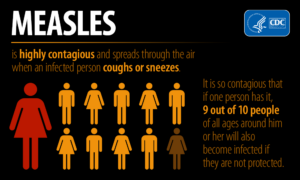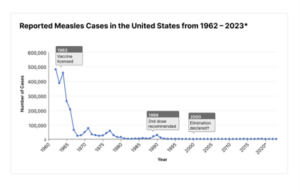Measles Cases on the Rise
 Update on July 10, 2024: The Upper Valley of New Hampshire and Vermont continue to see a small number of measles cases, with 2 more cases reported in just the past few days. Please be aware of your risks, whether you are vaccinated or not. Additional information is available at:
Update on July 10, 2024: The Upper Valley of New Hampshire and Vermont continue to see a small number of measles cases, with 2 more cases reported in just the past few days. Please be aware of your risks, whether you are vaccinated or not. Additional information is available at:
- Two new measles cases tied to visitor to Hanover, Valley News Article by Nora Doyle-Burr, July 9, 2024
- NH DHHS Identifies New Hampshire Resident with Measles, NH DHHS Press Release, July 9, 2024
- NH DHHS Investigating Possible Measles Exposure in Hanover, NH, NH DHHS Press Release, June 28, 2024
Original Post
Measles cases are rising in the United States (US), and Vermont recently had its first case of measles since 2018. As of May 3, 2024, there have been 131 cases of measles in the US this year, already more than double than in all of 2023. Measles is one of the most contagious viruses and can cause serious illness in some people, like babies, young children, and people with weakened immune systems.
Reversing an Historic Public Health Achievement
According to the US Centers for Disease Control and Prevention, “Measles was officially eliminated from the United States in 2000†, meaning there is no measles spreading within the country and new cases are only found when someone contracts measles abroad and returns to the country. Achieving measles elimination status in the US was a historic public health achievement. The below figure illustrates how common measles was before vaccines and how vaccine policy enabled elimination.”
 Source: https://www.cdc.gov/measles/cases-outbreaks.html
Source: https://www.cdc.gov/measles/cases-outbreaks.html
*2023 data are preliminary and subject to change.
†Elimination is defined as the absence of endemic measles transmission in a region for ≥ 12 months in the presence of a well-performing surveillance system.
No Longer at Herd Immunity Levels in All Places
The risk of widespread outbreaks in Vermont and the US is low because of high vaccination rates, but communities with less than 95% vaccine coverage rates are at higher risk for outbreaks.
The 95% number is important because when more than 95% of people in a community are vaccinated, most people are protected through community (or herd) immunity. This includes protection for people who are unable to be vaccinated for medical reasons and/or are medically vulnerable to even mild cases of measles. However, vaccination coverage among U.S. kindergartners has decreased from 95.2% during the 2019–2020 school year to 93.1% in the 2022–2023 school year, leaving approximately 250,000 kindergartners at risk each year over the last three years.
- Vermont’s Kindergarten MMR Vaccination Rate for 2022/2023: 93.1%
- New Hampshire’s Kindergarten MMR Vaccination Rate for 2022/2023: 89.4%
What Happens If my Child is Not Vaccinated
There are a few reasons why a child may not receive vaccinations like the MMR; these include medical exemptions and religious exemptions. No matter the reason, people who have not been vaccinated are at increased risk of disease and/or spreading the measles virus if they are exposed.
In Vermont, the Department of Health has asked School Nurses to proactively let parents of children with exemptions or provisional admittance know that their children will need to quarantine for up to 21 days if there is an outbreak in the school. This can help parents prepare for the potential disruption of keeping their unvaccinated children home for 3-weeks. Such steps have also been part of New Hampshire rules; however, it is unclear what the State guidance may be at this time.
For more Information about Measles Vaccination, Health Impacts, and Outbreaks:
To Get Vaccinated
Both New Hampshire and Vermont offer vaccines free to children. The links above will provide information about how to request a free vaccine, though in both states you generally start with your regular health care provider or a federally qualified health center or free clinic.
In Vermont, if you do not have health insurance and are under the age of 65, you can also make an appointment at your Local Health Office to get vaccinated. Local health offices do not charge a fee for giving the vaccine.





Leave a Reply
Want to join the discussion?Feel free to contribute!